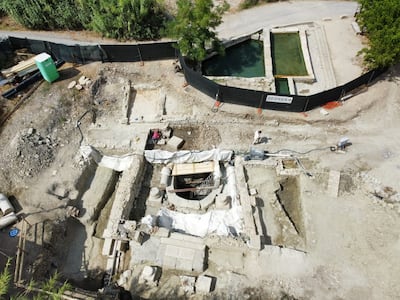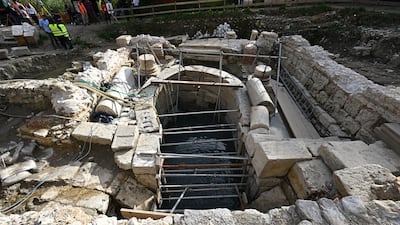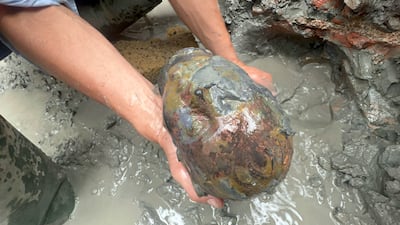Archaeologists have found more than two dozen bronze statues dating back to ancient Roman times in thermal baths in Tuscany, Italy, which experts are hailing as an “exceptional” discovery.
Among the beautifully preserved statues — all about 2,300 years old — are figures of the god Apollo and Hygieia, goddess of health.
“It is a very significant, exceptional finding,” said Jacopo Tabolli from the University for Foreigners in Siena who is leading the archaeological project.
He added: “[It’s] a discovery that will rewrite history and on which over 60 experts from all over the world are already at work.”
The statues were found over the last two weeks in San Casciano dei Bagni, a hilltop town about 160 kilometres north of Rome.
Mr Tabolli said the statues used to adorn a sanctuary before they were immersed in thermal waters in a sort of ritual, “probably around the first century AD.”
“You give to the water because you hope that the water gives something back to you,” he said, explaining the ritual, and San Casciano's hot waters helped to preserve them “almost like as on the day they were immersed.”
The statues were also covered by almost 6,000 bronze, silver and gold coins.
The team found 24 large statues and several smaller statuettes in the town, where archaeologists have been exploring ancient ruins for the last three years.

Mr Tabolli said that it was unusual for such statues be made out of bronze, rather than terracotta, and that this suggested they came from an “elite” settlement.
Italian Culture Minister Gennaro Sangiuliano also hailed the find, which he said should provide a further boost to tourism.

“This is an exceptional discovery which confirms once again that Italy is a country of immense and unique treasures,” he said.
The statues have been moved to a restoration laboratory in Grosseto, also in Tuscany, and the plan is to eventually return them to San Casciano dei Bagni to be displayed in a new museum.











